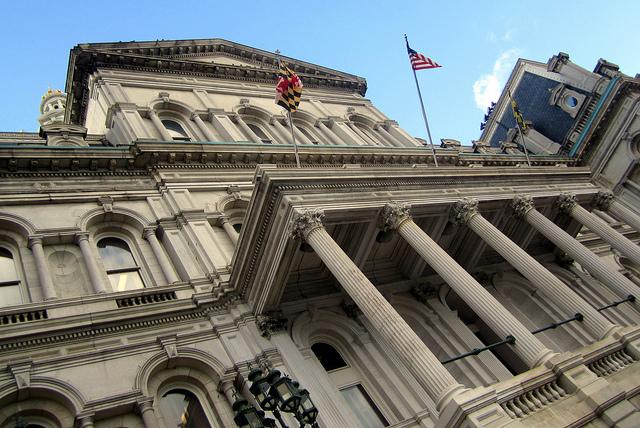On Thursday, Feb. 4, Marilyn Mosby, Baltimore state’s attorney, gave the 2016 Black History Month keynote address. Mosby, 36, is the youngest chief prosecutor of any major city in the United States.
Mosby concentrated her speech on urging young people to stand up for justice and change within their community, and encouraged them by emphasizing the power of education and the ability of their pasts to shape the direction of their future.
Mosby began her address citing the importance of education, saying that change must begin with “young people who are unafraid to challenge the status quo.” She inspired the audience to be bold by incorporating her ascension to her current position. “People told me over and over again that my dream [of becoming State’s Attorney] was impossible,” Mosby said. She also cited Martin Luther King, Jr.’s famous quote “justice delayed is justice denied” in substantiating her affirmation that “there comes a time to decide that enough is enough.” “If not me, then who? If not now, then when?” Mosby said.
A major component that Mosby said shaped her experience, and shaped her speech, was her reliance on her faith and her confidence in God’s plan for her life. She went on to tell the audience that she was raised by a single mom in an urban setting, and she shared the story of her cousin, who was murdered at the age of 17 when he was mistaken for a drug dealer.
“I could have given up and let failure take over,” Mosby said, but instead, she chose to trust in God. She quoted Isaiah 41:10, “So do not fear, for I am with you; do not be dismayed, for I am your God. I will strengthen you and help you; I will uphold you with my righteous right hand” (NIV), and Romans 8:41, “If God is for you, who can be against you?” as she explained that all of the adversity she faced in her youth “prepared [her] to face any storm.”
Mosby went on to describe some of the adversity that she’s faced throughout her political career, citing the slights of many who believed that she would not be successful. Mosby said that she was told the only reason she could defeat a white incumbent when she was running for public office was because she was a black woman running for office in a predominantly black city, among other criticisms.
A murmur of agreement and some applause accompanied Mosby’s response to such criticisms as she explained that the misogyny and racism that she had experienced “were not an attack on me but rather an attack on what I represent.”
“Never let one person’s dreams be defined by others’ expectations,” Mosby said as she segued into a discussion on actions that can be taken by young people to create positive change in their communities. She shared an array of statistics regarding the current incarceration rates as well as the racial/ethnic breakdown of those incarcerated and those incarcerating: “How can we expect justice to be blind?” Mosby asked. “As a community, we need to do more than just talk.”
Mosby also said that while violence never goes unreported, things like income and poverty rates along ethnic and racial lines does. She also affirmed that these issues are not unique to Baltimore, and that “when we talk about how to change, we can no longer have these discussions in a vacuum.”
“You are the next generation of leaders to step up,” Mosby said to students in the audience. She said that it is up to us to force change, “it begins with you, and it begins today,” Mosby said. She stressed that “education is the key to overcoming ignorance.”
She then addressed women specifically, saying that all women have a chance to make a difference by being an example for “our sisters, nieces and daughters.” She encouraged women to inspire young girls on the idea that “it is their respect for their bodies and their minds that makes them beautiful,” and she added that this begins with who we choose to love.
Mosby then turned her attention to the men in the audience, encouraging them to teach the boys in their lives that they are not “thugs” like the media portrays. “Be an example [for younger boys] in the way you love your women—the young men are watching,” she said.
She tied the end of her address to the Jesuit values that underline our education at Loyola, saying that we don’t know defeat, and the time to act is now. “If not us, then who? If not now, then when?” she said as the audience rose to give a standing ovation.
Following her address, Mosby took time to answer questions from students, faculty, and community members in the audience. Questions ranged from topics such as Mosby’s college experience, to women in high positions, to ways to shape society. Mosby’s responses included encouragement for current students to “try not to think about instant gratification” and to rather think about the long-term goal—“success is not defined by the amount of money you make but by how happy you are in your career.” In response to a question regarding the ways that we can shape our community, Mosby discussed the power of personal stories, saying that “sometimes we’re afraid to share our testimonies,” and pushed young women to “reach back to young girls who are looking up to you.”
Photo from Flickr CreativeCommons: Wally Gobetz.














































































































